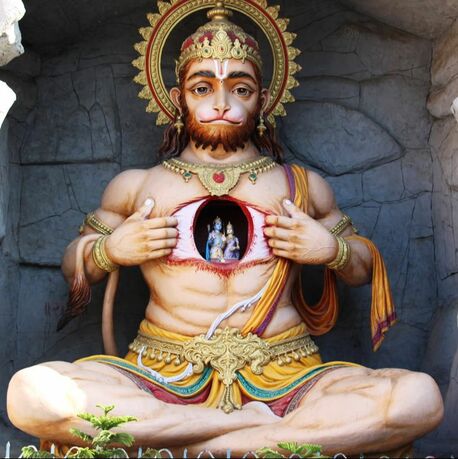|
Sutra 1.17: Vitarka vicārānandāsmitānugamāt samprajñātah ~ "Samprajñāta samādhi is accompanied by reasoning, reflecting, rejoicing and pure I-am-ness." Sutra 1.18: Vira8ma pratyayābhyāsa pūrvah samskāraseso'nyah ~ "By the firmly convinced practice of the complete cessations of the mental modifications, the impressions only remain. This is the other samādhi [asamprajñāta samādhi]." Sutra 1.19: Bhavapratyayo videha prakrtilayānām ~ "Those who merely leave their physical bodies and attainthe state of celestial deities, or those who get merged in Nature, have rebirth." Sutra 1.20: Sraddhāvīryasmrtisamādhiprajñāpūrvaka itaresām ~ "For the others, this asamprajñāta samādhi could come through faith, vigour, memory, contemplation and/or by discernment." *Translations by Sri Swami Satchidanada* **Sutras 1.21 & 1.22 briefly covered at the bottom of this post!** In Sutra 1.17, Patanjali explains the two different types of samadhi (distinguished ~ samprajñāta, and undistinguished - asamprajñāta), and further divides the samprajñāta samādhi into four forms ~ essentially: reasoning, reflecting, rejoicing and pure I-am-ness. Sri Swami Satchidananda explains this as a sort of gradation of contemplation offered by Patanjali, starting with the gross and moving into the more subtle, once the mind has become firmly rooted (and fully immersed) in the concrete. In this commentary, the part that stuck with me most was, "Samprajñāta samādhi is a process of going inward -- not evolution, but involution... It could be called the creation and destruction, but actually, there is nothing created in you, nor is anything destroyed. As the Bhagavad Gita explains, the unmanifest appears as manifest and then returns to the unmanifest." With Sutra 1.18, Patanjali moves onto the other type of samādhi, asamprajñāta, the next stage, which Sri Swami Satchidananda describes as the state where even the ego feeling is absent and the seeds of past impressions are rendered harmless; only the consciousness remains, and nothing else. Here, he says, "the individual is completely liberated and there is no more coming into the world and getting tossed." {*jīvanmukta*} I find Sutra 1.19 quite complex and esoteric, both in translation and commentary from Sri Swami Satchidananda, so I'm going to hold off on adding much of my own commentary in this post. I can only say that I get the 'merging with nature' part, but I don't really understand the bit about leaving the physical body to attain the state of celestial deities... but sign me up, please! - that does sound super cool. Sutra 1.20 discusses some methods of yogic practice that should be used to reach asamprajñāta samādhi, including faith, vigour, memory, contemplation, and discernment. Sri Swami Satchidananda makes very little additional commentary here, aside from distinguishing that by 'discernment', Patanjali means the ability to discriminate between the real (Self) and the unreal (Prakrti). He also explains that faith could also be called courage, and vigour, memory, and discernment are the strength to continue on this path with the knowledge of lessons learned along the way. To revert back to my original post in this series for a second -- I mentioned that I had always doubted my experiences with what I understood as samādhi and was hesitant to discuss it because I could never find adequate words to describe these experiences. This set of sutras helped to demystify it for me, and I think that is in large part because Patanjali has broken it down into its smaller pieces and has also illuminated different practices in getting there. Studying this portion of sutras also brought back a sweet memory from my 2017 trip to India... Cam and I went to a talk at the International Yoga Festival in Rishikesh last year with Shilpa Joshi and Parmanand Aggarwal called 'Concept of Ashtanga Yoga & Practices of the Meditative Asanas'. The first notes I took were, "The goal of yoga is liberation - surrender completely to cosmic love." Then, I wrote, "*samadhi isn't final goal, as your soul needs to be merged with the cosmic consciousness while you remain on earth." (In my note-taking, '*' means either 'this is important' or 'I need more info'; in this case, I think it was both.) It continues, "SUTRAS - the discipline of yoga is the here-and-now ~ we must unite and harmonize mind-body so we can get into the higher levels and more subtle aspect of consciousness." I had an opportunity to speak to Shilpa Joshi after the talk, and I nervously described what I thought might be my own samādhi experiences - the first at four years old, sitting on my front lawn, the next at 22, wading in the Indian Ocean after my first-ever yoga class - and I asked her if it was even possible to experience any form of samādhi as a child, without having the rational understanding through contemplation and experience. I understood the pure bliss and cosmic connectedness ~ the rejoicing and pure I-am-ness ~ and even the merging with nature and moving beyond ego bit, but without much reasoning or reflecting to speak of. There was no established, methodical practice - just the sense of all-encompassing love and connectedness. She told me it was possible, if the child had a more solid connection to past-life memory. She was so warm and kind and had the most powerful dark eyes, and I can't really explain why, but hearing this from her felt like total reassurance. The @purplevalleyyoga challenge asked us simply to "comment on the subject of knowledge". In the context of these sutras, and with my own understanding and experiences with them, I believe that knowledge can come through different practices and on different paths, and is found along the way to universal Truth. I think it can also be a subtler knowing that's just beyond words; a deep seed planted in our consciousness, that with practice (and love) will eventually bloom.
The challenge skips Sutras 1.21 and 1.22, and they are only translated in the Sri Swami Satchidananda book because they don't really require commentary, but I'd still like to briefly cover them here for consistency throughout this series: Sutra 1.21: Tivarsamvegānāmāsannah ~ "To the keen and intent practitioner, this [samādhi] comes vey quickly." Sutra 1.22: Mrdu madhyadhimātratvāt tato'pi visesah ~ "The time necessary for success further depends on whether the practice is mild, medium, or intense." This comes as no surprise: the greater our focus and dedication to the practice, the quicker our progress will be. Patanjali doesn't seem to insist on any one path, though, and this reminds of me the Sri K. Pattabhi Jois quote: "Do your practice and all is coming."
0 Comments
Your comment will be posted after it is approved.
Leave a Reply. |


